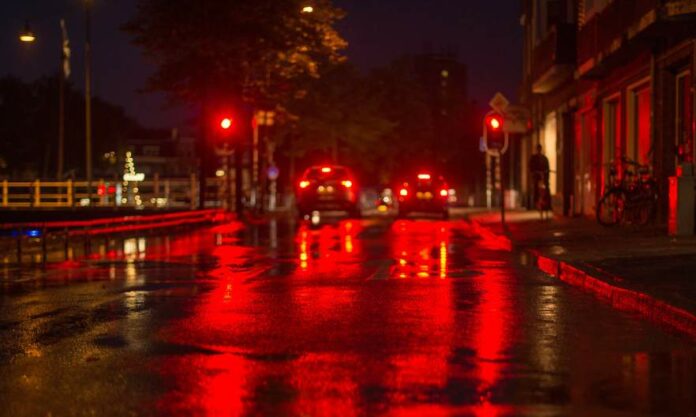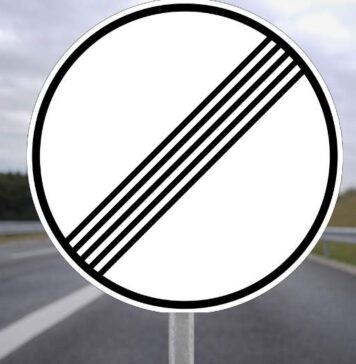A red light violation, also known as a “Rotlichtverstoß” in German, happens when a driver does not stop at a red traffic light. Simply, it means going through a red light instead of stopping. This is against the law in Germany, and it can be dangerous.
Crossing a Red Light in Germany
Traffic lights are there for a reason. They help to control the flow of traffic and keep people safe on the road. Obeying traffic signals, including red lights, is not just about following the law. It’s about keeping yourself, other drivers, and pedestrians safe.
When a driver crosses a red light, they risk causing an accident. This can lead to injuries or even death. It can also cause traffic jams and other problems on the road.
In Germany, the rules about traffic lights are taken very seriously. There are fines and other penalties for those who break the rules. This is why it’s important to understand what a red light violation is and why it’s important to obey traffic signals.
Fines and Penalties
Crossing a red light in Germany is a serious offense. The fines and penalties can vary based on the situation. Below is a detailed table outlining the different scenarios and corresponding fines, points, and potential driving bans.
| Violation | Fine | Points | Driving Ban |
|---|---|---|---|
| Cross the traffic light when it is “red”. | €118.50 | 1 | |
| … others endangered | €228.50 | 2 | 1 month |
| … caused property damage | €268.50 | 2 | 1 month |
| Traffic light passed at “red” (red already for more than 1 second) | €228.50 | 2 | 1 month* |
| … others endangered | €348.50 | 2 | 1 month* |
| … caused property damage | €388.50 | 2 | 1 month* |
| Turned right at a traffic light with a green arrow without stopping first | €98.50 | 1 | |
| … impedes pedestrian or bicycle traffic in the approved traffic direction | €128.50 | 1 | |
| … others endangered | €128.50 | 1 | |
| … caused property damage | €148.50 | 1 |
*Depending on the commission of the offense, a fine, withdrawal of the driver’s license, and imprisonment of up to 5 years according to § 315c StGB are also possible.
Points and Driving Bans
In Germany, if you get too many points on your driving record, you can lose your license. Crossing a red light in Germany adds points to your record. Here’s what that means:
- One Point: For a simple red light violation.
- Two Points: For a red light violation that puts others in danger or causes damage.
- Driving Ban: If the situation is serious, like causing a crash, you might also get a driving ban for a month or more.
Types of Red Light Violations
Simple Red Light Violation
A simple red light violation occurs when a driver passes a red traffic light without causing any danger or damage. It’s considered a basic offense, and the penalties include a fine and one point on the driving record.
Qualified Red Light Violation
A qualified red light violation is more serious and occurs when a driver crosses a red light and:
- Endangers others
- Causes property damage
- Passes the red light after it’s been red for more than one second
These situations lead to higher fines, more points, and possibly a driving ban.
Violations with Different Vehicles
Not only car drivers can be fined for crossing a red light, but also other road users. Here’s how different vehicles are affected:
- Bicycles: Cyclists must obey traffic lights just like car drivers. Crossing a red light on a bicycle leads to fines.
- Trucks (Lkw): Truck drivers are held to the same rules. Crossing a red light in a truck can lead to hefty fines and other penalties.
Special Cases: Turning Right with a Green Arrow
In Germany, there are some traffic lights with a green arrow sign. This allows drivers to turn right even when the light is red, but they must stop first. If a driver turns right without stopping, they can be fined.
Detection and Enforcement
How Red Light Violations Are Detected
Red light violations in Germany are detected through both stationary and mobile means.
Stationary surveillance includes permanent installations at intersections, such as cameras and induction loops embedded in the road. These tools are designed to detect when a vehicle crosses the stop line after the light turns red. When this happens, the camera is activated, capturing images of the vehicle, including the license plate, to identify the offender.
Mobile surveillance, on the other hand, is carried out by police or other authorities. They may observe traffic directly or use mobile video surveillance to detect red light violations. Police may watch traffic and stop drivers who cross red lights, or some authorities may use mobile cameras to capture violations on the go.
Both stationary and mobile surveillance systems play a vital role in enforcing red light rules. Together, they help monitor intersections, issue fines and conduct random checks to ensure compliance with traffic rules.
Police and Authorities’ Role in Enforcement
The police and other authorities also have a significant role in enforcing red light rules. They may be stationed at intersections to watch for violations. If a violation is detected, they issue fines and other penalties. Random checks may also be conducted to ensure that drivers are following the rules.
Legal Aspects and Appeals
In Germany, red light violations are governed by specific laws and regulations. The German Road Traffic Regulations (StVO) outline the rules for obeying traffic signals, including red lights.
How to Appeal Against a Fine
If you receive a fine for a red light violation in Germany, you might have the right to object. Here’s how the appeal process works:
- Review the Fine: Check the details of the fine for any errors or inconsistencies.
- Consult a Legal Expert: If you believe the fine is unjust, you may want to consult a lawyer or legal expert.
- File an Objection: You can file an objection to the fine with the relevant authorities. This must be done within a specific timeframe, usually within 14 days.
- Await a Response: The authorities will review your objection and respond. They may dismiss the fine, reduce it, or uphold it.
Common Errors in Fines
Some fines may contain errors or inconsistencies, such as:
- Incorrect Details: Mistakes in the vehicle’s registration number, date, time, or location.
- Unclear Evidence: Lack of clear evidence, such as unclear photographs or conflicting witness statements.
- Procedural Errors: Mistakes in the legal process, such as incorrect delivery of the fine notice.
FAQs
Conclusion
Crossing the road at a red light in Germany is quite complicated for the offender as the consequences of such a mistake are extremely severe. If you drive through a red light, you can get the immediate legal penalties of fine, points, and possible ban of the driving but such traffic violations can be social or psychological too. So, it is better not to follow the traffic signal.






